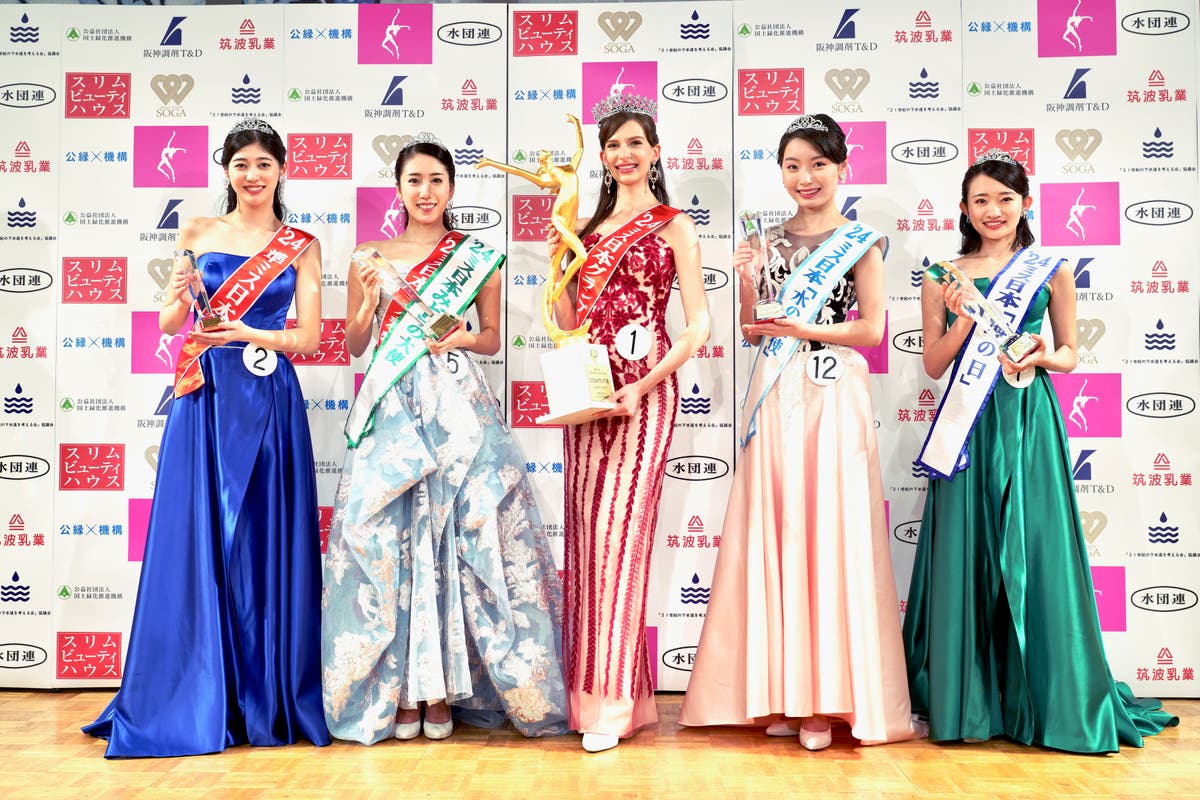Ukraine-born Miss Japan relinquished her title following a tabloid report that she was having an affair with a married man and weeks of heated public debate on her eligibility.
Karolina Shiino, 26, was crowned Miss Japan almost two weeks ago, sparking discussions about her heritage and what constitutes traditional Japanese beauty ideals.
The controversy escalated when Shukan Bunshun published allegations of her relationship with a married influencer and doctor, leading to public backlash.
The organisers of the pageant initially defended her and said that Miss Shiino was unaware of the man’s marital status. “Miss Japan Association believes there was no fault on the part of Karolina Shiino,” it said on its website.
Later, though, they confirmed that she had continued the relationship even after knowing about the man’s marital status.
In a statement on Monday, the Miss Japan Association said they had accepted Ms Shiino’s request to relinquish the title and offered “deep apologies” to sponsors, judges and other stakeholders.
The association said the title of Miss Japan will remain vacant for the rest of the year after Ms Shiino’s decision.
Ms Shiino’s agency, Free Wave, announced on its website on Monday that the man involved in the scandal, who was not named in any media outlets, initially claimed to be single so Ms Shiino continued the relationship.
The agency also accepted her proposal to terminate her contract with them.
She was the first person of European descent to win the top prize in the contest dedicated to crowning a representation of the “foremost beauty of all Japanese women”.
Ms Shiino was born to Ukrainian parents and grew up in Nagoya, central Japan, after coming to the country at age 5.
On her Instagram on Monday, Ms Shiino apologised to her followers and said: “I am truly sorry for the huge trouble I have caused and for betraying those who supported me.” She said that she had been “unable to speak the truth due to confusion and fear”.
After winning the crown, she said in an interview with the Japan Times that growing up she had struggled with her identity.
“All my life I’ve been told I’m not Japanese enough, both directly and indirectly, but I know I am Japanese. I can’t help it. Nobody has the right to tell me I’m not,” she said.
“I don’t think it’s one thing that makes you Japanese. What I do know is that it’s a matter of the heart,” she added. “If a person thinks she is Japanese, then she is.”

